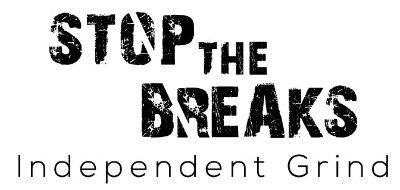
Over 80 hours – that’s how long [households in Louisiana](https://www.eia.gov/todayinenergy/detail.php?id=54639#:~:text=U.S. electricity customers averaged seven hours of power interruptions in 2021&text=On average%2C U.S. electricity customers,hour less than in 2020.) spent without power in 2021 on average.
While this was the most affected state by far, others have similarly worrying records. Homes in Oregon, West Virginia, Texas, and Mississippi had an approximate average of 20 hours without power throughout the year.
Considering these are average numbers, it suggests some homes went days, if not weeks, without power.
But surely with enough candles and canned food, you’ll be fine? No. Failure of the electrical grid poses far more risks than the lights going out.
In this guide, we’ll walk you through the effects of grid failure. Then we’ll show you what you can do to avoid these risks. Read on to find out how to stay prepared!
Heating and Cooling
One of the most common reasons for a power outage is extreme weather. Unbearable heat or cold can cripple power plants or the grid itself.
But this is when your home needs power the most! If the power grid goes down while your HVAC systems are running, your home will experience a sudden change in temperature. This can cause everything from heatstroke to frostbite if not quickly fixed.
To manage for a short period, households could keep battery-powered units in storage. However, for a longer period, alternative power sources such as those over at this website are the best solution.
Water
Does your home rely on a water pump for its supply? If so, power grid failure will leave your home without water. This creates immediate problems.
Within the first day, you’ll become very uncomfortable not being able to shower. Toilets also won’t be able to flush, making an unpleasant environment for everyone in the home. And there’ll be no water for washing any dishes – or cleaning of any kind.
The situation is more dire for those who get drinking water from their supply. Whether you use a filter or not, a power outage immediately cuts off your drinking water access.
To prepare for this eventuality, keep drinking water stored in the house. At least three days’ worth for each member of your household means you are prepared for most outages. If the grid failure lasts longer than that, three days’ supply can sustain you while you find more water.
Home Security Systems
Most home security systems have backup power in case of grid failure. This measure keeps your home secure even if the power goes out.
However, few systems can hold enough charge to last extended periods of time. A long power cut would then leave your home vulnerable. The only way to keep the system up and running in long periods without power is energy generated at home.
Medical Equipment
One of the most vulnerable groups during an outage is those who rely on medical equipment. If you or someone in your household uses equipment that connects to power, their health could be at risk without electricity.
Even if the equipment can hold some charge, having no electricity puts it on a ticking clock. In these cases, your home needs an alternative energy source, such as the solutions referenced earlier.
No Contact
During short power outages, most people will have no issue with communication. Presuming cell networks are still up and running, most people stay contactable as long as their phone has some charge.
After a day though, when your cell runs out of battery, that may leave you completely cut off. Especially for those who live in more isolated areas, being able to make contact in an emergency is vital.
To prepare for a short power cut, it’s a good idea to keep your cell charged while at home. Some also invest in a power bank as a secondary power source. However, for longer grid failures, you’ll need energy generated at home.
Carbon Monoxide
In a recent study of the effects of power outages, one of the first risks listed was carbon monoxide poisoning. While this may seem completely unrelated to not having electricity, it’s a widespread issue because of how people react.
When electric cooking equipment isn’t working, many people use gas instead. Gas cookers designed to work inside the home shouldn’t pose an issue.
But many households resort to using more basic equipment, such as gas stoves designed for camping. These stoves aren’t made to be used indoors. The carbon monoxide they emit can be dangerously high if in a confined space rather than outdoors.
To avoid this danger, never use outdoor gas cooking equipment indoors.
Inconvenient or Expensive Effects
Besides these issues, power cuts can damage your appliances or cost money in other ways. While not likely to pose a serious danger, here are more effects of a power outage to consider.
Damaged Electrics
When the power eventually returns, it may surge in a way that damages all your electrics. Imagine the expense of your TV, microwave, and dryer – everything breaking all at once! While you can live without them, it’s a great reason to keep your home on an alternative energy source.
Internet and Computer Issues
As well as the risk of a power surge, the power outage itself can damage your computer. Computers aren’t designed to suddenly disconnect from power. The outage can therefore cause damage to the hardware itself, as well as corrupt your files.
If you work from home online, a sudden loss of power also ruins your work day.
Your device will have no power and no internet. This leaves you likely unable to work, as well as interrupting any work you were doing. But this is all avoidable if your home has its own power source.
Prepare for Electrical Grid Failure Now!
As the climate continues to worsen, electrical grid failure will become more frequent and widespread.
You could stock up on canned food to see you through. But that doesn’t take care of issues like keeping medical equipment, security systems, or your internet going.
Prepare by finding an alternative power source ahead of time! Solar panels, generators – anything that can keep your home up and running is a worthwhile investment. To learn more about energy sources for your home, type “energy” into our search bar now!



